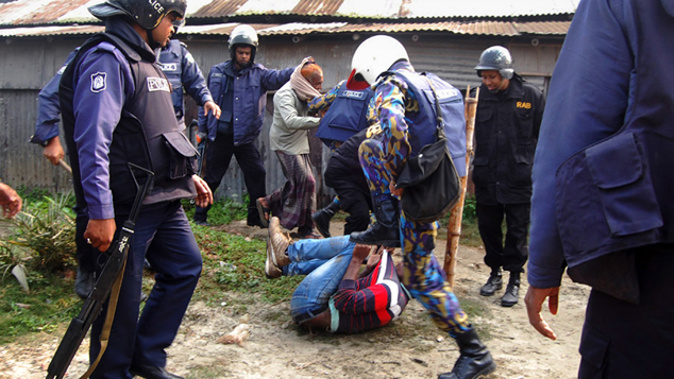
Secret documents reveal New Zealand has shared intelligence collected through covert surveillance with Bangladesh despite that country's security forces being implicated in extrajudicial killings, torture and other human rights abuses.
The documents shine light on the major role played by the Government Communications Security Bureau (GCSB) in electronic spying operations conducted in the small South Asian nation.
The surveillance has been used to aid the United States as part of its global counter-terrorism campaign, launched after the September 11 attacks in 2001.
The New Zealand Herald analysed the documents in collaboration with US news website The Intercept, which obtained them from the NSA whistle-blower Edward Snowden.
The Bangladesh spying is revealed in an April 2013 US National Security Agency (NSA) report about its relationship with New Zealand. In a section called "What Partner Provides to NSA", it says "GCSB has been the lead for the intelligence community on the Bangladesh CT [Counter-Terrorism] target since 2004." The GCSB provides "one of the key SIGINT [signals intelligence] sources of [Bangladesh counter-terrorism] reporting to the US intelligence community."
The intelligence gathered by the GCSB staff was also being forwarded to foreign intelligence agencies, including Bangladesh's state intelligence agency. In recent years, human rights groups have issued several reports documenting Bangladeshi intelligence and security agencies' disregard for international prohibitions on torture and alleged involvement in politically motivated killings. In 2014, a case was filed in the International Criminal Court accusing the Bangladesh Government of committing crimes against humanity.
The GCSB's surveillance operations in Bangladesh are among the most surprising and obscure yet revealed. Bangladesh barely registers in New Zealand foreign policy. The Ministry of Foreign Affairs and Trade website says: "Relations between New Zealand and Bangladesh remain friendly, although interaction is limited."
Nonetheless, a New Zealand government source told the Herald that Bangladesh is the main focus of one of the GCSB's four analysis sections, called ICT, and has been for over a decade. ICT, the Transnational Issues section, was set up in April 2002 in the wake of the September 11 attacks to focus on terrorism threats.
The Bangladesh project appears to have begun in 2003, under Prime Minister Helen Clark, at a time when her Government was receptive to US war-on-terror requests following refusal to join the invasion of Iraq.
TO READ THE FULL REPORT CLICK HERE
Take your Radio, Podcasts and Music with you









